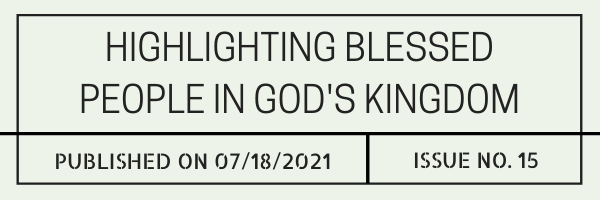
“Meek Moses“
[By Caroline Piner]
How would you label Moses? Some might say he was a prince of Egypt (if you know the movie), some might say he was scared and gave excuses, like at the burning bush (Exodus 3). Most people would label him as a great leader and giver of the law. These may all be accurate, or at least were at some point in his life, however, the most important label given to him was given by God in Numbers 12:3 (ESV), “Now the man Moses was very meek, more than all the people who were on the face of the earth.”
Moses was the meekest man of his time – awesome! Now what does that mean? When Cameron presented his lesson on the beatitude of meekness (Matthew 5:5), he said that the idea of being meek was like taming a wild beast and using its strength for a purpose. God used Moses’ strengths for His purpose of bringing Israel out of Egypt and into Canaan. Moses didn’t start out as an incredibly meek person because he didn’t think he had any strengths. In Exodus 3:11, he says he’s not anything special, and of course, he’s right. God in v. 12 doesn’t try to build Moses up by saying what he’s good at or that he is special. God’s response is that HE will be with him and has sent him. Moses later makes the excuse in Exodus 4:10 that he is not a good speaker, to which God responds that HE is the one who made Moses’ mouth and he will make him enough. This passage is a great challenge for us when we think we’re not good enough to do God’s work. God made us and He will make us enough. We are who He says we are and we need to use what He’s given us for Him. In Numbers 12, when Aaron and Miriam went against Moses, questioning who he married and his leadership over Israel, Moses had the perfect response: to let God handle it. Moses said nothing, because he was “very meek…” (12:3, ESV). God answered Aaron and Miriam, telling them that He had chosen Moses.
Matthew 5:5 says, “Blessed are the meek, for they shall inherit the earth” (ESV). This concept is also mentioned a number of times in Psalm 37. Connecting this idea of the meek inheriting the earth to Moses may seem a bit ironic since Moses didn’t get to inherit the Promised Land of Canaan, as we’re told in Numbers 20:2-13. But Moses did inherit the ultimate promised land of heaven. Hebrews 11:23-28 tells us that he chose to suffer with his people and in his life because he was looking to a better reward than even Canaan. His meekness kept him focused on God and on that inheritance even though a slip-up cost him the earthly promised land. To be meek, we must recognize our strengths that God tells us He has given us and use them for Him and His work.
